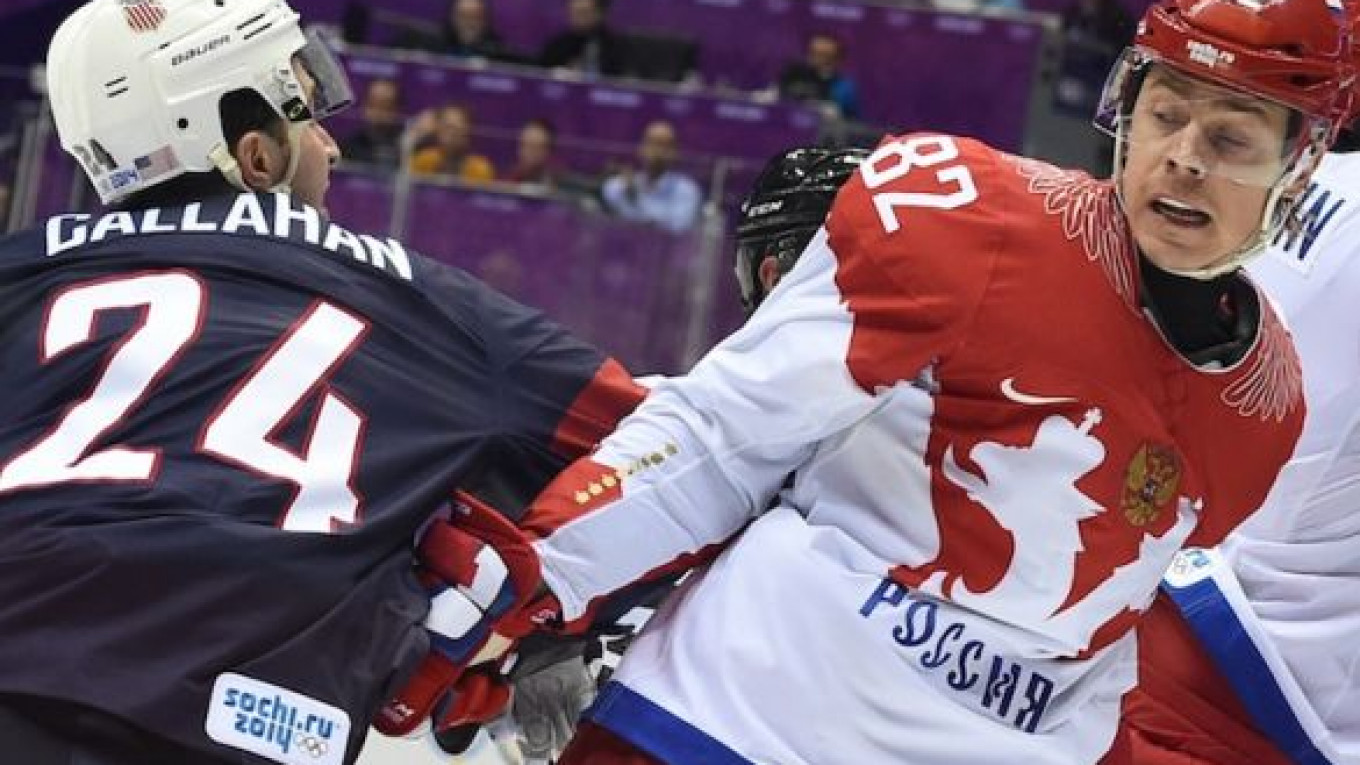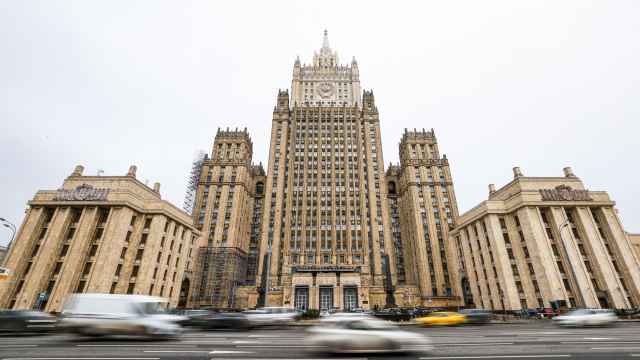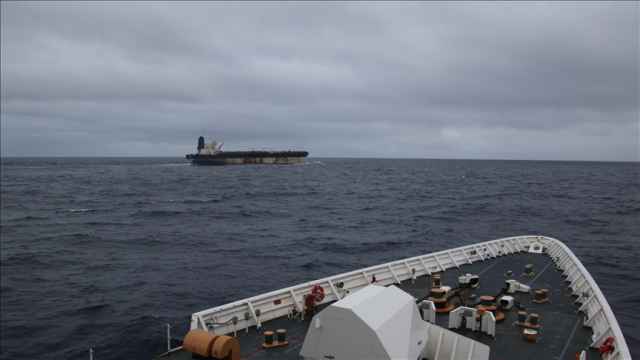By Dave Sheinin
In the waning seconds of the first period of their medal-round game in the 1980 Lake Placid Winter Olympics, a long rebound found the stick of a U.S. hockey player, who, as a pair of Soviet defenders stood still in anticipation of the buzzer sounding, fired the puck past the goalie with one second left on the clock. The defenders were humiliated, the goalie was benched for the rest of the game, and the unbeatable Soviets went on to lose to a bunch of American college kids in a 4-3 upset that would be immortalized as the "Miracle on Ice."
One of those Soviet defenders, Zinetula Bilyaletdinov, is now the silver-haired, no-nonsense coach of Team Russia's entry in the 2014 Sochi Winter Olympics. The benched goalie, Vladislav Tretiak, widely regarded as one of the best netminders in history, is the Russian team's president.
The Soviet head coach in 1980, Viktor Tikhonov — who has said benching Tretiak was the biggest mistake of his career — has a grandson and namesake on the current Russian roster. One of the American players from the legendary game, Bob Suter, has a son, Ryan, on the U.S. roster.
Nearly 34 years after it happened, the "Miracle on Ice" still casts a long shadow over the 2014 Games, despite the fact only two players on either team — Russian captain Pavel Datsyuk and defenseman Andrei Markov, both 35 — were even alive at the time.
"As a child, there were three horror films I knew from the West," Dmitry Chernyshenko, president of the Sochi 2014 organizing committee, said in a speech to IOC officials earlier this week. "One was 'Nightmare on Elm Street.' The second one was 'Friday the 13th.' And the third one was 'Miracle on Ice.' "
But as the United States and Russia prepare to face off Saturday in a preliminary-round game at Bolshoi Ice Dome, the legacy of that fateful 1980 contest is a complex one. The hard edges of the U.S.-Russia rivalry have been softened by time, shifting geopolitical circumstances and the ubiquitous presence of Russians in the NHL, among other factors. If you mention the Miracle on Ice around this Sochi hockey tournament, you likely will receive a roll of the eyes from Americans or shrugged shoulders from Russians.
"I think the Miracle on Ice is obviously a great accomplishment for the U.S.," center David Backes said, "but it was 34 years ago, and we're still [talking about it]. I think the guys here would like to write our own chapter."
Tretiak, a national icon whose likeness is visible on promotional material and signage all over the Olympic Park, has answered graciously when asked about 1980, saying, "We have to give [credit] to the U.S. team. In 1980, it was a miracle, and in fact it made it possible for ice hockey to develop so fast in the United States and gave [the sport] great impetus."
Still, when an American reporter asked Tretiak how long it took him to get over the loss, he shot back, "Let me tell you this: In '84 we managed to rectify our mistakes. We got our gold."
Ask a Russian here which country is their biggest rival in hockey and the answer almost certainly would be Canada, whose eight Olympic gold medals in hockey equals the number won by the Soviets (including the 1992 gold by the Unified Team of former Soviet republics). The United States, meantime, owns just two.
"Definitely Canada," said Mikhail Zakharov, media manager for Team Russia. "There is more history [between the teams], more championships."
To Russians, the 1972 "Summit Series" — an epic, eight-game battle between the Soviet Union and a team of mostly Canadian NHL players — is seen as a more pivotal moment in international hockey history than the Miracle on Ice.
Aside from the dissolution of the Soviet Union and the ending of the Cold War, the globalization of hockey itself also has contributed to the cooling of the U.S.-Russia rivalry. In 1980, most U.S. players knew little about their Soviet opponents, who existed to them mostly as mysterious, ghost-like legends and as figures in grainy videos. The Soviet team was seen as an extension of the superpower's global ambition.
"During the Soviet time, sports were seen as something very political," said Vladimir Pozner, a prominent Russian broadcast news journalist and author. "If your team won, it meant your system was better than the others."
Now, however, Russian and American players don't just know each other on a first-name basis; some of them play together on NHL teams in North America. Russian left wing Alex Ovechkin, who will play against his Washington Capitals teammate John Carlson, a Team USA defenseman, on Saturday, spends some 10 months a year in the United States, returning to his native Moscow only in the summer.
Though Ovechkin is passionately nationalistic and loyal to Russia, in terms of physical presence he is more of a Washingtonian than a Muscovite. Like many of his Russian teammates, he has become a millionaire many times over in the United States, currently about halfway through a $124 million contract he signed with the Capitals in 2008.
"I have friends [in Washington]. I have house there. I feel at home there," Ovechkin said in a recent interview. "It is my second home."
Ovechkin's relationship with the United States, then, is vastly different than the one experienced by the previous generation of Soviet athletes — including his mother. Tatyana Ovechkina was a point guard for the Soviet basketball teams that won gold in the 1976 and 1980 Summer Olympics and has always lamented the fact the United States boycotted the latter Games, in Moscow, in protest of the Soviet invasion of Afghanistan.
"I was disappointed. It was a big pity," she told The Washington Post in 2004. "The Olympics weren't the Olympics without the Americans."
In Sochi, the Russians and Americans regard each more as a significant hurdle on their respective quests to end lengthy gold-medal droughts — 22 years for Russia, 34 for the U.S. team — than as hated rivals facing off for nothing less than validation of their nations' ways of life.
Once upon a time, the United States against the Soviet Union — in the first Winter Olympics ever held on Russian soil, no less — would have resonated across the global political and cultural landscapes. Now, for better or worse, it is simply an important hockey game.
A Message from The Moscow Times:
Dear readers,
We are facing unprecedented challenges. Russia's Prosecutor General's Office has designated The Moscow Times as an "undesirable" organization, criminalizing our work and putting our staff at risk of prosecution. This follows our earlier unjust labeling as a "foreign agent."
These actions are direct attempts to silence independent journalism in Russia. The authorities claim our work "discredits the decisions of the Russian leadership." We see things differently: we strive to provide accurate, unbiased reporting on Russia.
We, the journalists of The Moscow Times, refuse to be silenced. But to continue our work, we need your help.
Your support, no matter how small, makes a world of difference. If you can, please support us monthly starting from just $2. It's quick to set up, and every contribution makes a significant impact.
By supporting The Moscow Times, you're defending open, independent journalism in the face of repression. Thank you for standing with us.
Remind me later.






